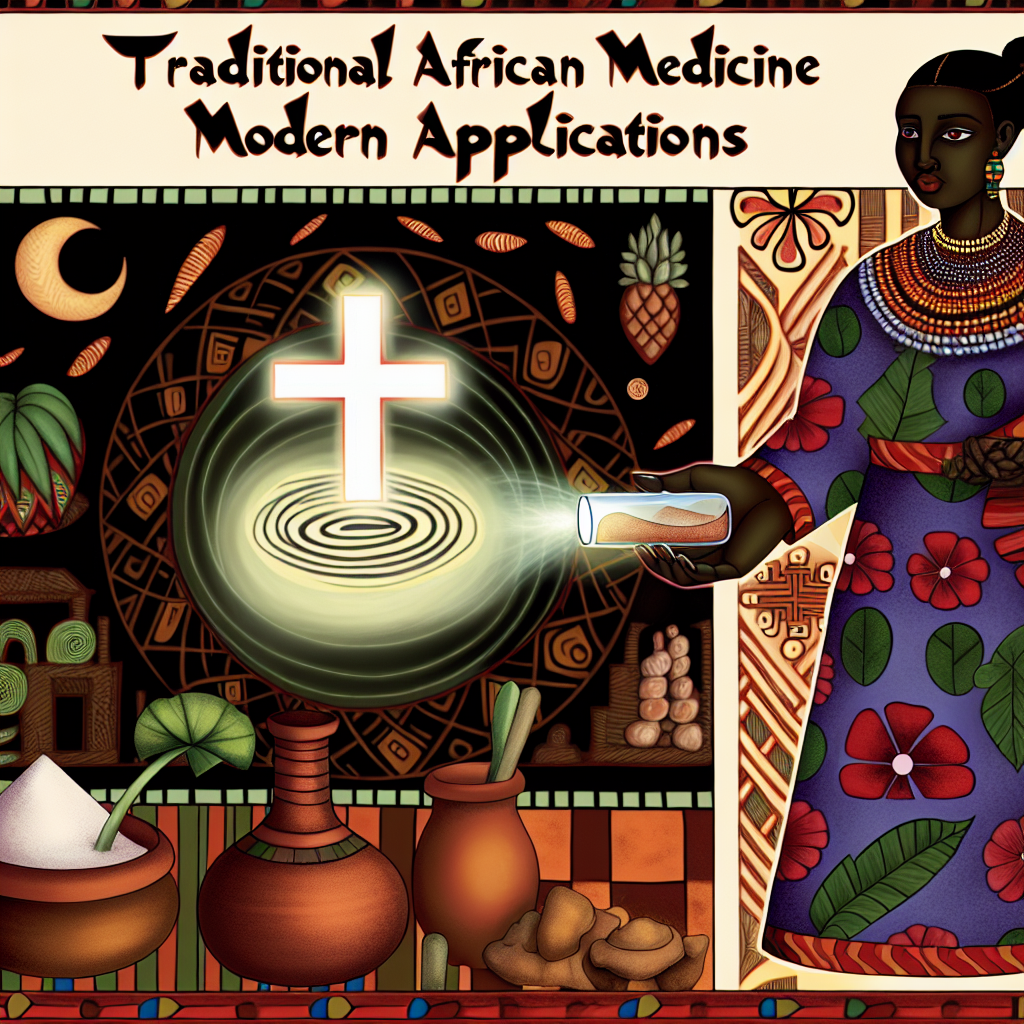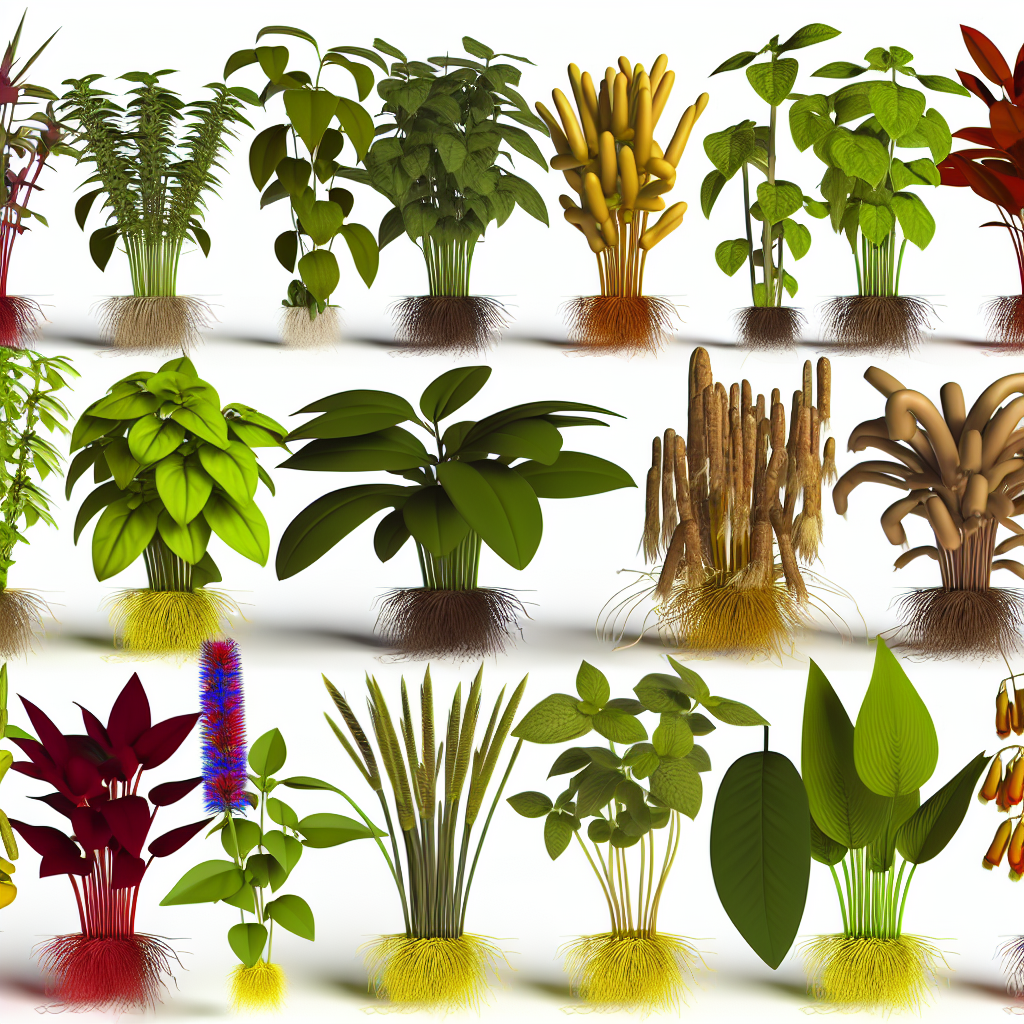Traditional African Medicine: Modern Applications
Introduction: The Timeless Power of Traditional African Medicine
For centuries, Traditional African Medicine (TAM) has been the cornerstone of healthcare for many indigenous communities across the African continent. Rooted in a rich cultural and spiritual framework, TAM encompasses a holistic approach to healing, integrating plant-based remedies, spiritual practices, and community-based healing techniques. Long before the introduction of Western medicine, African healers—commonly known as herbalists, diviners, and spiritual healers—were vital in diagnosing and treating ailments using natural elements sourced from their environment.
The knowledge of TAM has been passed down through generations, relying heavily on herbal medicine, dietary guidance, and spiritual alignment. Different regions across Africa have cultivated their own unique healing traditions, many of which have proven effective in treating a variety of conditions, including infections, digestive disorders, hypertension, diabetes, and even mental health issues. Plants such as Artemisia annua (used for malaria treatment), Prunus africana (for prostate ailments), and Nigella sativa (black seed) have long been employed for their potent medicinal properties.
In recent years, there has been a global resurgence of interest in traditional and herbal medicine, especially as people seek more natural and holistic alternatives to pharmaceutical interventions. The World Health Organization (WHO) estimates that up to 80% of the population in Africa still relies on TAM for their primary healthcare needs, demonstrating its enduring relevance and effectiveness. Moreover, researchers and medical professionals worldwide are now investigating the bioactive components of African medicinal plants, leading to new discoveries and potential pharmaceutical applications.
This increasing recognition of TAM’s value is also fueled by the limitations of conventional medicine—such as antibiotic resistance, affordability, and accessibility issues in certain regions. Given that many pharmaceuticals are derived from plant compounds, exploring TAM for modern medical applications could present groundbreaking opportunities for healthcare innovation. This article examines how Traditional African Medicine is being integrated into modern healthcare practices and how scientific validation is contributing to its approval and application in various parts of the world.
Scientific Research Unlocking the Potential of Traditional African Medicine
As traditional African remedies gain mainstream recognition, scientific research has been instrumental in validating their effectiveness and uncovering new potential medical applications. Several studies and clinical trials have been conducted to assess the safety, efficacy, and biochemical properties of herbal medicine used in African healing practices.
Artemisia Annua: A Natural Solution to Malaria
One notable example is Artemisia annua, commonly known as sweet wormwood. This plant has been used in African traditional medicine to treat fevers and malaria for centuries. The active compound found in the plant, artemisinin, was discovered and extensively researched, leading to the development of artemisinin-based combination therapies (ACTs), which are now the standard treatment for malaria worldwide. The incorporation of this African medicinal herb into modern pharmaceuticals has significantly reduced malaria-related mortality in many parts of the world ([World Health Organization](https://www.who.int/news-room/fact-sheets/detail/malaria)).
Prunus Africana: Promoting Prostate Health Naturally
Another breakthrough in African medicinal plant research involves Prunus africana, or African cherry tree bark, in treating prostate disorders, particularly benign prostatic hyperplasia (BPH). Scientific studies have confirmed that the extracts from this tree exhibit anti-inflammatory and anti-androgenic properties, making them useful in managing prostate health. Pharmaceutical companies have since incorporated Prunus africana extract into commercially available prostate health supplements ([National Center for Biotechnology Information](https://www.ncbi.nlm.nih.gov/pmc/articles/PMC3329512/)).
Sutherlandia Frutescens: A Powerful Immune Booster
Sutherlandia frutescens, also known as cancer bush, has been extensively studied for its adaptogenic and immune-boosting properties. This plant has traditionally been used to manage HIV/AIDS symptoms, tuberculosis, and stress-related disorders. Preliminary research indicates that it contains bioactive compounds such as flavonoids, saponins, and pinitol, which contribute to its antioxidative and immunomodulatory effects ([South African Journal of Botany](https://www.sciencedirect.com/science/article/pii/S025462992100236X)).
Traditional Medicine for Mental Health: A Holistic Approach
Mental health treatments within TAM incorporate herbal remedies such as Mondia whitei (African ginger) and Rauvolfia vomitoria, which have been used to address anxiety, depression, and neurological imbalances. With the rising awareness of mental health conditions and the side effects of synthetic drugs, TAM is being explored as a complementary or alternative treatment for psychiatric disorders ([Journal of Ethnopharmacology](https://www.sciencedirect.com/journal/journal-of-ethnopharmacology)).
Spiritual Healing and Energy Balance in Traditional African Medicine
Aside from herbal treatments, TAM recognizes the importance of holistic healing and energy balance. The role of spiritual healing—often overlooked in modern medicine—provides psychological benefits similar to mindfulness-based interventions. Traditional divination, community cleansing rituals, and meditation are being investigated for their mental health benefits and overall well-being enhancements ([BMC Complementary Medicine and Therapies](https://bmccomplementmedtherapies.biomedcentral.com/)).
The Future of Traditional African Medicine in Modern Healthcare
The growing body of evidence supporting the efficacy of Traditional African Medicine has sparked interest in integrating it with conventional medical practices. Several African nations, including Nigeria, South Africa, and Ghana, have begun incorporating herbal medicine into their formal healthcare systems. Some universities now offer degrees in traditional medicine to train holistic practitioners, ensuring that indigenous healing knowledge is preserved and standardized. The establishment of research centers focused on African herbal medicine further signifies the increasing recognition of its potential in global healthcare.
Conclusion: Bridging Tradition and Innovation in Medicine
Traditional African Medicine, once sidelined by mainstream medicine, is experiencing a revival as scientific validation reveals its potential in treating a range of diseases. With continued research and integration into modern healthcare, TAM could bridge the gap between traditional and contemporary treatment methods, offering natural and cost-effective alternatives to synthetic drugs. The success of treatments like artemisinin-based malaria medication and prostate health supplements derived from African medicinal plants highlights the importance of preserving indigenous healing knowledge and further exploring its medical applications.
Despite its promising benefits, challenges remain in standardizing herbal treatments, ensuring safety, and garnering regulatory approval. Nevertheless, with the growing appreciation for holistic and natural remedies, TAM is poised to play a significant role in shaping the future of medicine. By fostering collaboration between traditional healers, scientists, and healthcare providers, we can create a healthcare ecosystem that respects and utilizes the wisdom of Africa’s ancestral healing traditions while advancing modern medical innovations.
References
1. World Health Organization. (2023). [Malaria](https://www.who.int/news-room/fact-sheets/detail/malaria)
2. National Center for Biotechnology Information. (2012). [Prunus africana: A Review](https://www.ncbi.nlm.nih.gov/pmc/articles/PMC3329512/)
3. South African Journal of Botany. (2021). [Sutherlandia frutescens and Its Medicinal Properties](https://www.sciencedirect.com/science/article/pii/S025462992100236X)
4. Journal of Ethnopharmacology. (2022). [African Medicinal Plants in Mental Health Treatment](https://www.sciencedirect.com/journal/journal-of-ethnopharmacology)
5. BMC Complementary Medicine and Therapies. (2021). [Spiritual Healing and Mental Well-being](https://bmccomplementmedtherapies.biomedcentral.com/)
Summary:
Traditional African Medicine (TAM) has been the cornerstone of healthcare for many indigenous communities in Africa for centuries. TAM encompasses a holistic approach to healing, integrating plant-based remedies, spiritual practices, and community-based techniques. Scientific research has validated the effectiveness of African medicinal plants, leading to the development of treatments for malaria, prostate disorders, and immune-boosting properties. TAM is being increasingly integrated into modern healthcare systems, with African nations incorporating herbal medicine and establishing research centers to preserve indigenous healing knowledge. The future of TAM lies in bridging tradition and innovation, offering natural and cost-effective alternatives to synthetic drugs while advancing modern medical innovations.

Dominic E. is a passionate filmmaker navigating the exciting intersection of art and science. By day, he delves into the complexities of the human body as a full-time medical writer, meticulously translating intricate medical concepts into accessible and engaging narratives. By night, he explores the boundless realm of cinematic storytelling, crafting narratives that evoke emotion and challenge perspectives.
Film Student and Full-time Medical Writer for ContentVendor.com




